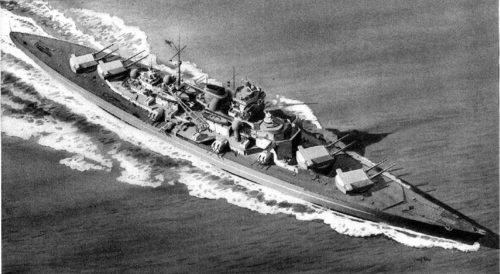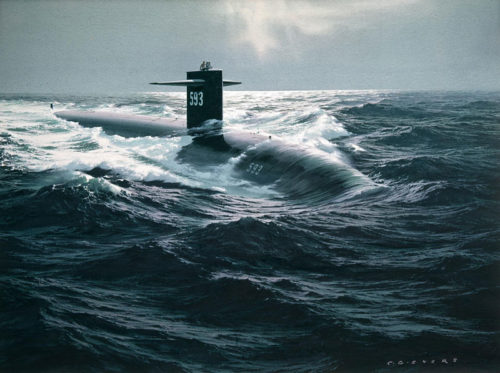
Bird strike caused fatal Snowbirds crash, report confirms
A single small bird brought down a Canadian Snowbirds demonstration aircraft last year after it was sucked into the plane’s engine and caused a compressor

A single small bird brought down a Canadian Snowbirds demonstration aircraft last year after it was sucked into the plane’s engine and caused a compressor

On March 31, 1944, Canadian destroyers HMCS Sioux and HMCS Algonquin left Scapa Flow in Scotland’s Orkney Islands to join Operation Tungsten, the hunt for

At 8 a.m. on April 9, 1963, USS Thresher (SSN-593), the lead boat in its class of nuclear-powered attack submarines, left port at Kittery, Maine,

On the morning of March 24, 1945, 1st Canadian Parachute Battalion jumped into heavily defended territory on the east bank of the Rhine River, part

The Legionary cover headline in September 1939 was sombre—Canada at War—and the words ‘The Fighting Man’s Magazine’ were added to the masthead. The magazine’s

Never before have so many Canadians reached the grand old age of 100, and their compatriots are noticing. Among the last of “The Greatest Generation,” many are



Get the latest stories on military history, veterans issues and Canadian Armed Forces delivered to your inbox. PLUS receive ReaderPerks discounts!

| Cookie | Duration | Description |
|---|---|---|
| cookielawinfo-checkbox-analytics | 11 months | This cookie is set by GDPR Cookie Consent plugin. The cookie is used to store the user consent for the cookies in the category "Analytics". |
| cookielawinfo-checkbox-functional | 11 months | The cookie is set by GDPR cookie consent to record the user consent for the cookies in the category "Functional". |
| cookielawinfo-checkbox-necessary | 11 months | This cookie is set by GDPR Cookie Consent plugin. The cookies is used to store the user consent for the cookies in the category "Necessary". |
| cookielawinfo-checkbox-others | 11 months | This cookie is set by GDPR Cookie Consent plugin. The cookie is used to store the user consent for the cookies in the category "Other. |
| cookielawinfo-checkbox-performance | 11 months | This cookie is set by GDPR Cookie Consent plugin. The cookie is used to store the user consent for the cookies in the category "Performance". |
| viewed_cookie_policy | 11 months | The cookie is set by the GDPR Cookie Consent plugin and is used to store whether or not user has consented to the use of cookies. It does not store any personal data. |



Free e-book
An informative primer on Canada’s crucial role in the Normandy landing, June 6, 1944.